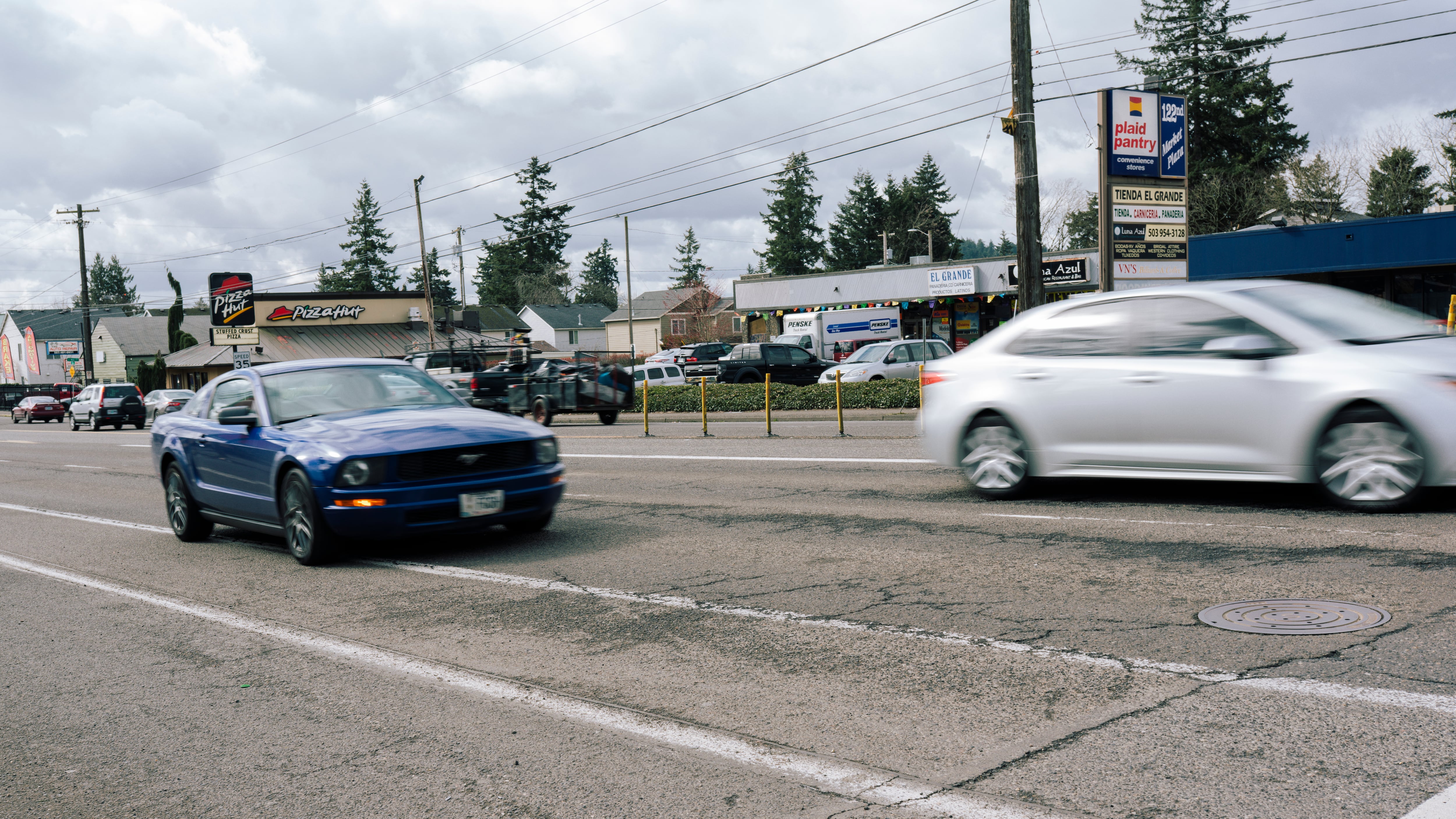New figures from the Oregon Department of Transportation show that hardly anybody is taking part in the agency’s pilot program to shift away from charging drivers a gas tax.
Twenty years after ODOT began exploring an option to have drivers pay a tax based on miles traveled—currently 1.8 cents per mile—fewer than 1,000 Oregonians have made the shift. That’s out of 3.1 million registered passenger vehicles.
What’s the problem?
Oregon and all other states—as well as the federal government—pay for transportation infrastructure through a gas tax charged at the pump.
Transportation fuel is the nation’s largest source of carbon emissions, so policymakers want the internal combustion engine to go away as soon as possible. But with it goes the gas tax. In other words, electric vehicles take money out of state coffers—because drivers don’t have to buy gas.
ODOT has said the state highway fund could go bust as early as 2024 without significant changes.
What’s the solution?
The Oregon Legislature recognized as far back as 2001 that a rise in more fuel-efficient vehicles would eventually result in revenue shortages if the state continued to depend on the gas tax. To combat the problem, lawmakers created the Road User Fee Task Force to come up with new ways to raise funds.
After pilot projects in 2008 and 2012, the task force eventually launched OReGO in 2015 to pilot a mileage tax. It became the nation’s first road usage fee program—charging by the mile instead of by the gallon.
How’s that going?
OReGO began six years ago, with about 1,200 vehicles participating. Today, ODOT says, that number has shrunk to just 765.
Critics, including Portland economist Joe Cortright, say there’s no incentive to join the program as it’s currently constituted and, in fact, the way ODOT set the rules creates a disincentive for many drivers. That’s because, for vehicles that get more than 20 miles to the gallon, OReGO becomes more expensive than the gas tax.
“If we are going to go to all the trouble to change the way we see the road system,” says Cortright, “we should be thinking about something from 21st century technology.”
Cortright advocates adopting a more complex program that measures a vehicle’s impact on roads and the environment and reflects that back to the user, rather than a flat rate for all types of cars.
But ODOT’s Michelle Godfrey says the agency isn’t bothered by the low enrollment.
“I’m not sure [more participation is a] goal of the program,” says Godfrey, education and outreach coordinator for OReGO. “The OReGO program as it stands really isn’t going to expand much more.”
So what is ODOT’s endgame?
ODOT says OReGO works fine: Lawmakers just have to require motorists to enter the program. The only flaw with the mileage tax, says Godfrey, is that it’s voluntary.
“We have enough people to test different aspects of road usage charging,” she says, “and there are so many things we want to prove in order to move toward a mandate in Oregon.”
Earlier this year, state Rep. John Lively (D-Springfield) introduced House Bill 2342, which would have forced Oregonians whose vehicles get more than 30 miles per gallon into OReGO no later than July 2026.
The bill failed, leaving Lively frustrated.
“If we don’t get a date certain that we are going to do this,” says Lively, “we never get to deal with those other issues of if it’s totally fair or not.”
Without a mandate, Lively says, OReGO has little effect. ODOT can continue to test different scenarios, like how to implement a road usage charge between state lines, but that ultimately won’t help to solve the agency’s funding problem.
Lively says it’s past time Oregon made the pilot program a reality.
“The only way the program works,” he says, “is to start requiring people to use it.”
